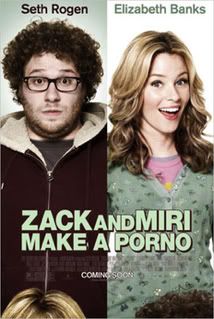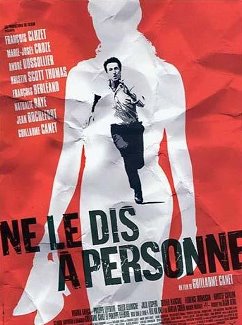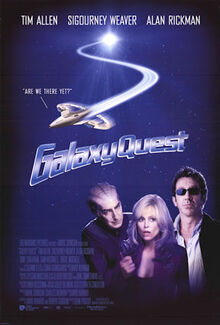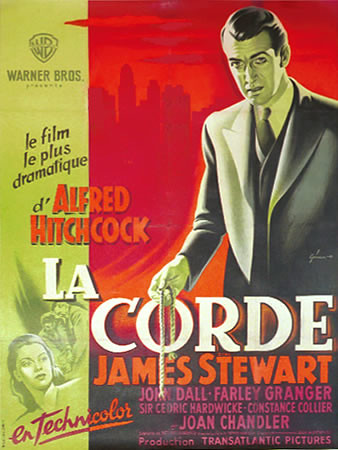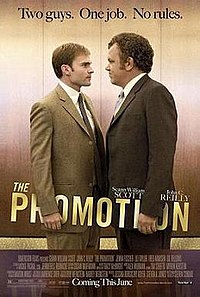
as countless film fans have no doubt spent the bulk of October appreciating, horror may well be the healthiest of film genres, and has been for some time. not so much creatively, perhaps (
Cloverfield is the only theatrical release sitting above par so far this year) but certainly from a production and distribution standpoint: besides the standard wide theatrical model, scary movies of all stripes continue to find audiences through channels that would almost surely fail, say, similarly low-on-the-radar romantic comedies or costume dramas.
the venues are wide-ranging. on television, Showtime's "Masters Of Horror" and NBC's "Fear Itself" both attracted major genre players to a rebirth of the horror anthology, while On Demand network FEARnet and its website mix higher-profile screamers with easy-to-license cheapies. theatrically, After Dark Films have found considerable success with their Horrorfest, an annual eight-film lineup simulcast to theaters across the country.
it's the oft-maligned "straight to video" strategy, though, that drives horror's unique self-sufficiency. The most conspicuous player has recently been the Weinstein Company's Dimension Extreme boutique label, which has distributed new films by George Romero and Dario Argento as well as surprises like last year's charming vagina-dentata caper
Teeth, but earlier this month a potentially stiff competitor emerged in the form of Ghost House Underground, a likeminded line of DVDs ostensibly presided over by
Evil Dead masterminds Sam Raimi and Rob Tapert's Ghost House Productions.
watching Ghost House Underground's eight debut films, the more relevant factor in the indie horror boom looms heavily: the reason these companies have found such success in alternative distribution is that the core audience for these films have notoriously (if self-consciously) low standards. no one will speak as fondly about abjectly terrible films as the horror connoisseur; some seem to relish inept writing and inert performances nearly as much as stomach-turning violence.
a test, then, for that sort of horror fan: try
Brotherhood Of Blood on for size. perhaps the line's most high profile title considering the presence of genre stalwarts Sid Haig and Ken Foree,
Brotherhood is also by some margin the least watchable. its vampire-hunting scenario is passable, and both actors seem to be having their share of fun, but nearly everything else about the film (directed by Uwe Boll compatriots Michael Roesch and Peter Scheerer) handily overshadows anything that might be construed as entertainment; in acting, artifice and tone,
Brotherhood Of Blood feels like a failed pilot for a macabre soap opera, shot on Hi8 through a dirty window.
the other two American films in the set benefit only by comparison. Gregg Bishop's prom-night zombie chopper
Dance Of The Dead has already met a kind reaction from the fanboy community through festival screenings, but that's as much to do with the glut of pandering genre in-jokes than with any particular merit. its emphasis on comedy does set it apart from the rest of the too-serious Ghost House set, but it would stand out more if the comedy were actually funny; there are three or four good chuckles and one unique idea (the zombies react curiously to terrible pop-punk) but overall
Dance doesn't reflect well on self-styled wunderkind Bishop as a humorist or a filmmaker.
nor does
No Man's Land: The Rise Of Reeker give any inkling as to why writer/director Dave Payne thought it would be worthwhile to give the
Evil Dead II half-sequel, half-remake treatment to his recent grim reaper re-imagining
Reeker. it's at the very least one of the set's handsomest productions, but innocuously self-indulgent to a fault: while horror movies often stoop to contrivance and flawed logic,
No Man's Land settles -- strives, even -- for a complete logical vacuum in both motivation and the narrative itself. It's engaging, but don't expect it to justify itself.
Ghost House Underground's five imports paint a rosier picture of the state of horror filmmaking, mired though they are in invasive American influence (and awful English dubs, though subtitles and original audio are included on each DVD.) the most eye-catching one, in fact, was shot in English and boasts studio-caliber production values: Finland's
Dark Floors, a haunted hospital tale that doubles as a vanity project for mega-popular costumed Finnish power metal band Lordi.
Dark Floors walks a fine line between a surprisingly creepy tone and the necessary silliness of building a scary movie around five hard-rocking monsters, but a decline in focus leaves
Dark Floors little more than a precious novelty. (the disc also includes the best of the set's moderately generous special features, including two music videos and a hilariously blase press conference.)
on the other side of the American influence there is unfortunately also the tedious, unpleasant
Trackman, a slick Russian thriller about a sewer-dwelling, eyeball-plucking maniac tailing escaping bank robbers and their hostages. though it contains the set's most accomplished gore, there is nothing further to recommend, and the contents of your stomach are just as threatened by the film's shakycam affectations as its violence.
Denmark's two entries, on the other hand, bring a bit of dignity to the table. Ole Bornedal's
The Substitute (a moody sci-fi riff on "Miss Nelson Is Missing") steps the furthest outside the bounds of niche horror, but from script to screen it's Martin Barnewitz'
Room 205 that proves the real high point. the story of a transfer student confronting a dormitory's ghostly secrets,
Room 205 is staged with considerably more care and talent than its Ghost House peers, and despite obvious debts to haunted-girl J-horror there is a clarity of purpose that keeps its tone and pacing surprisingly steady.
regardless, if there is one Ghost House Underground film destined to connect with discriminating gorehounds, it's Gabriele Albanesi's unhinged Giallo throwback
Last House In The Woods, which pits a young Italian couple against a troublesome cast of deranged forest-dwellers. familiar territory, sure, but the film has its own ideas as well, and enough depraved, graphic violence to fill in the holes. in a good many ways, in fact, it is Ghost House Underground's baddest of the bad, and the fact that that can mean different things to different people may be what keeps a beloved genre pumping blood.
(from the
KNOXVILLE VOICE)
 sad news from last week: Fox has announced that Mike Judge's quietly superb King Of The Hill will end its thirteen-season run this spring, carving their Sunday night schedule a gaping hole of character-driven comedy and humanism into which they will toss a third (count 'em) weekly half hour of Seth MacFarlane's insipid comedic panhandling. the good news? noted programming scavenger ABC may be in talks to bankroll a fourteenth season of the show to keep Judge's newest animated effort, The Goode Family, company.
sad news from last week: Fox has announced that Mike Judge's quietly superb King Of The Hill will end its thirteen-season run this spring, carving their Sunday night schedule a gaping hole of character-driven comedy and humanism into which they will toss a third (count 'em) weekly half hour of Seth MacFarlane's insipid comedic panhandling. the good news? noted programming scavenger ABC may be in talks to bankroll a fourteenth season of the show to keep Judge's newest animated effort, The Goode Family, company.